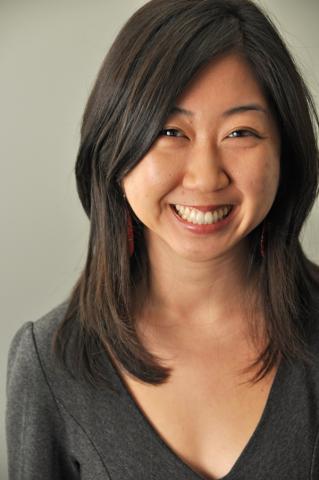
Jeannie hails from the lush suburbs of San Diego, where it is just as common to see birds of paradise growing along the freeway as it is to see a gleaming red arrow pointing you to hamburger heaven, otherwise known as In-N-Out. By the time she graduated high school, the comforts of home proved to be too, well, comfortable! And so she left to brave the frigid winters of Pittsburgh, where she studied English literature and professional writing at Carnegie Mellon University. After four years, the masochist in her decided she needed to subject herself to more bad weather, and so she moved to Wheaton, Ill., to study American church history at Wheaton College. There she learned that while cold is bad, cold plus wind is even worse. She returned home, hung up her down parka, and finally entered the working world as an editor at Outreach Magazine and youth pastor at Temecula Calvary Korean Church. After many late deadline nights and trips to Pinkberry with her students, God called her to Sojourners in Washington, D.C. She couldn’t be happier.
These days, Jeannie spends most of her time fiddling with syntax, thinking up new web initiatives, and learning from veteran Sojourners editors. Her idea of a perfect afternoon includes black coffee, a good book, and her magnificent sister.
Posts By This Author
Audio Interview with Francis Collins
Listen in as Francis Collins, author of The Language of God
Minority Reports
Last November’s election was the most racially and ethnically diverse in U.S. history, according to a study by the Pew Research Center.
Twitter Against Nukes
The recently launched Two Futures Project is twittering us into a non-nuclear future.
A How-To Video on Contemplative Prayer
Sojourners editors Rose Marie Berger and Jeannie Choi demonstrate simple contemplative prayer practices that anyone can adopt into their own worship habits. In part one, Rose and Jeannie talk about contemplative prayer and learn how to do a simple prayer exercise that uses the verse, "Be still and know that I am God," to center one's heart on God. In part two, Rose teaches Jeannie about Lectio Divina, a meditative reading of the Bible that encourages prayerful reflection.
Video Interview of Bill McKibben
Bill McKibben is an author and co-founder of 350.org. We caught up with him at Powershift 2009 in Washington, D.C., to ask him how the economic crisis has affected his personal life, what kind of advice he would give to those wanting to "shop local," and how his faith informs his work.
Alexie Torres-Fleming Video Interview
Alexie Torres-Fleming is executive director of Youth Ministries for Peace and Justice (ympj.org) in the South Bronx where she was born and raised.
How to ... Plant a Community Garden
“Food deserts,” neighborhoods where people must walk at least a mile or drive 30 miles to access a grocery store, are rife in both urban and rural areas throughout the U.S.
Free Music Monday: The Welcome Wagon
D.C. Tests Positive
Three percent of all District of Columbia residents are living with HIV/AIDS, according to a report released in March by the District government. The U.S.
Holy Water
The Ecumenical Water Network, an international Christian body formed to raise awareness about justice and the global water crisis, declared its frustration that the World Water Forum, which met in
Mennonites Call Church to Confess
More than 100 Mennonite pastors and lay ministers released a letter in April to the Mennonite Church USA, calling for the denomination to extend full welcome to gay and lesbian people and inviting
Sojourners Magazine Awards
Making Places and People Bloom
Whether it's the South Bronx or rural North Carolina, visionary activist Majora Carter argues that cleaning up our act is good for us -- and the economy.
Audio Interview with Majora Carter
Whether it's the South Bronx or rural North Carolina, visionary activist Majora Carter argues that cleaning up our act is good for us -- and the economy.
